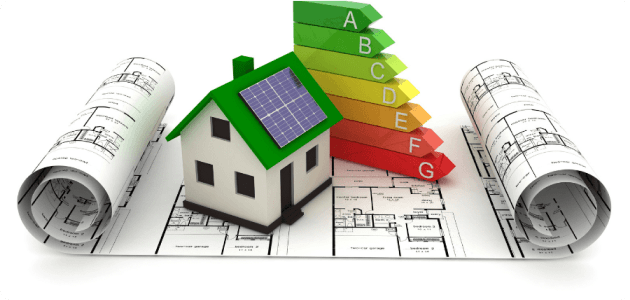You Can Lower Your Energy Costs With Some of These Changes

Whatever the season, you want to keep your comfortable air inside the house. Doing this will help you save energy and money on fuel or electricity. One common way to improve energy efficiency is insulating your home from outdoor elements and keeping your conditioned or heated air inside your home. Caulking and weather-stripping around the doors and windows can help prevent air leakage. Don’t forget also to seal the gaps around chimneys and flues. Make sure that attics, basements, and crawl spaces have some form of insulation to keep outside elements at bay and your comfortable air inside. Check for cracked or broken shingles on your roof and any sign of crumbling grout. If you have them, inspect your vapor barriers to see if they should be repaired or replaced.
It’s a good idea to inspect the exterior of your Houston area home once or twice a year to see if there is anything that needs attention. A good time to do an energy home inspection is when you have your regular, professional HVAC check-up for your AC or heating system. You’ll be getting ready for an approaching season of cold or heat, so heating and cooling concerns will be on your mind.
Windows: If you’re building a new home or replacing windows, invest in vinyl- or wood-clad insulated (thermopane) windows, storm windows, and doors. Then keep them closed whenever the heat or air conditioning is on! Due to their thermodynamic properties and potential gaps, windows can be one of your biggest sources of energy drain in winter and summer.
Clear and Clean Outdoor AC Equipment: Keep vegetation and debris well away from the outdoor AC unit of your system. Shrubs, leaves, dust, small branches, and other types of debris can block your unit's airflow. Blocked outside AC units must work harder to produce the same comfort level. You’ll spend more now … and in a few years when the equipment fails prematurely and you have to replace it.
Use Landscaping to Help Reduce Stress: However, if properly planned, you can use vegetation to keep your home cooler in summer and warmer in the winter. For example, plant a row of trees on the side of your home from which the wind comes to act as a wind block. Because deciduous trees lose their leaves in the winter, they’ll let in the sun’s light and warmth in winter; in the summer, they provide cooling shade. It’s a natural and attractive way to lessen the impact of the weather on your home.
Note: Be careful about how close you plant anything to the house, and consider that trees and shrubs will continue to grow. A local landscape architect, reputable garden center, or state or county extension agency can help you with plant selection and placement. A poorly planned set of trees or bushes can block the light you want or become highways for pests like carpenter ants that are looking for ways to get into your home.
Then sit back, relax, and enjoy year-round comfort!